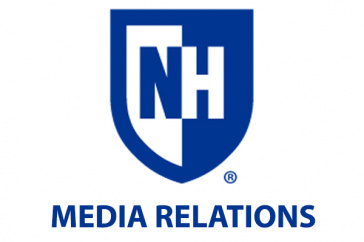The University of New Hampshire is a flagship research university that inspires innovation and transforms lives in our state, nation and world. More than 16,000 students from all 50 states and 71 countries engage with an award-winning faculty in top ranked programs in business, engineering, law, health and human services, liberal arts and the sciences across more than 200 programs of study. UNH’s research portfolio includes partnerships with NASA, NOAA, NSF and NIH, receiving more than $100 million in competitive external funding every year to further explore and define the frontiers of land, sea and space.
UNH Research Finds Youth with Certain Types of Disability have Increased Risk for Technology-Involved Peer Harassment

DURHAM, N.H.—New research from the University of New Hampshire finds that while youths with disabilities, mental health diagnoses and special education services experience peer harassment or bullying at similar rates as other youth, understanding differences in how they experience it may lead to solutions that minimize risk to all youth.
According to the researchers, 30 percent of youth ages 10-20 surveyed reported experiencing some form of harassment victimizatioN. Youths with a learning disability were more likely to experience harassment in person, while youths with a physical disability were more likely to experience harassment via technology. Depression was associated with peer harassment both in person and via technology.
“We hope these findings help schools consider the context in which these events occur and possible ways to minimize risk to all youths, including those with disabilities or those receiving special services in schools,” the researchers said. In particular, the researchers believe that peer-to-peer programs that give youth leadership skills and opportunities to partner with school staff will be most successful.
“One of the most interesting things to come out of this research is an increased understanding of just how integrated technology is in the lives of youths,” the researchers said. “We need to focus on helping youths learn how to take care of each other and feeling safe talking to trusted adults.”
The research was recently published in the national journal Children & Schools. It was conducted by Melissa Wells, professor of social work; Kimberly Mitchell and Lisa Jones, research associate professors in UNH’s Crimes Against Children Research Center; and Heather Turner, professor of sociology.
Latest News
-
November 6, 2025
-
November 5, 2025
-
October 24, 2025
-
October 8, 2025
-
October 2, 2025














































